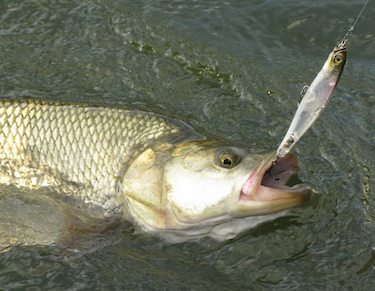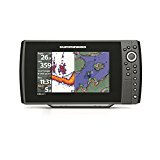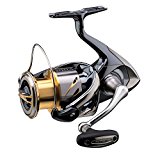Fishing Tackle – Attractants

Improve your odds by understanding how fish attractant works and the senses of fish.
We all start fishing at some point in our lives with great anticipation of the big catch. Some of us are lucky enough to start by catching one right away. Beginners luck some would say. Others just can’t seem to catch anything.
Do fish attractants work?
The simple answer is yes.
Fish Formulas: We get a lot of emails asking if fishing oils and scents really work. “Yes” But asking what scent to use is much like asking which lure should I use. The proper scent will depend on the fish and it’s location.
Bass attractant
We recommend the use of crawfish, shad and garlic scents as these are proven, tested and used by most bass anglers.
Let’s get rid of the most popular myth: ‘there’s no such thing as a scent that will attract fish’.
Scents, or fish formula, do nothing other than cover-up unwanted tastes or scents that have been contaminated, most likely from your hands. Think of fish formulas as hand soap. How many times have you filled up your car and gotten some gas on your hands? Don’t think so? Next time you fill up, smell your hands afterwards.
Fish scents act as cleaners to clear up odors foreign to the fish, like gasoline.
Now that we have that myth out of the way, let’s recall that fish do have scent organs and can smell their food, that’s the reason we recommend crawfish scented baits. It’s the number 1 bass food in North America.
What about other popular fish like salmon and trout?
Predation and Perception
Fish don’t have large brains that allow them to analyze a lure, leader and other mechanics of a presented lure. They respond to conditions by reacting and their responses are rather limited.
While it doesn’t take a lot of smarts to outwit a fish, it does require a good understanding of their senses, which are very sensitive. Some senses are stronger in some species than others, depending on the species and their habitat.
- Fish that have a keen sense of movement or vibration are better caught with live bait, but can be scared away with lines or leaders that suffer from vibration
- Those with excellent eye sight can be scared away from line color or a wire leader
- others are attracted by specific bright colors and others by dull colors
One of their most popular responses is to food and their urge to feed is very strong regardless of the species.
They also have a strong sense of survival with reproduction their next biggest urge, which often takes over all other needs.
Understanding how they respond in each situation will help you understand what technique to use. Fish strike for various reasons and it’s not always for food. Sometimes they respond out of hunger, other times they respond to defend.
The key is understanding the fish you want to catch is appealing to its senses and avoid those movements, lures, baits and tackle that will scare them away.
Smell
All fish have the ability to smell and each species is different from the other. While we don’t know to what degree they can smell, we do know that human odors do repel fish and that baits like worms that have smells most likely do a better job of masking human odors than attracting the fish.
In this case, there is a greater chance to push fish away with odor than to attract.
Vision
Fish have a great sense of hearing, yet their sense of sight is much more limited in the best of fish, in terms of how they can see. Water, even when clear, is difficult to see through vast distance. Many would argue, and be correct, in that fish can see much better through sound than they can through their eyes.
However, in clear water, fish do respond to certain colors more than others. You can also appeal to their sense of hunger with life like replicas of their most popular foods.
Just because a color range works well on one species, it’s no guarantee that it will work well for all species.
Note: Pacific Salmon and more color-centric than their related cousins the trout.
Once again, knowing these details will improve your success with the right techniques.
Hearing
Fish hear well. Not only do they hear better than we do, but they have the ability to hear sounds outside of our audible range. Understanding this is critical because sounds in water travel much further than in air so be careful not to scare them by walking loudly on a dock, dropping things in a boat or anything else that will cause a vibration.
However, mimicking the sounds made by injured fish and other prey will increase your chances of success.
Taste
As with sight, there’s no real consensus regarding a fish’s ability to taste. However, it’s important to understand that some fish taste by bumping into the lure with external sensory organs, which appear like whiskers. Catfish have the most recognizable barbs.
Those fish without barbs often mouth a lure to see if it’s worth eating. The fish that mouth a lure will quickly spit it out if they detect it’s not food. For these fish, a quick yank of the line is needed when using a lure, though live bait would work best. Again, understand your prey’s preference.


